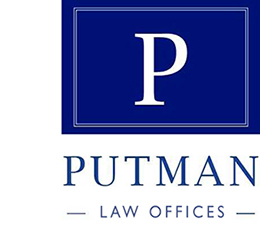Probate Law

When someone dies in Ohio, a legal process called “probate” takes place to properly distribute the decedent’s property (known as his/her estate) and, if possible, pay the decedent’s last debts. Probating an estate is often a complex process, requiring knowledge of various areas of law, including: probate, tax, contract, etc.
At Putman Law Offices, we realize that often this can be an overwhelming and intimidating process for clients. We also realize that clients are often in the midst of grief, mourning, and potential shock over the loss of a loved one. We are committed to taking on as much of the work as is possible in probating the estate to relieve our clients from such a burden. If we can be of assistance to you with the death of a loved one, please do not hesitate to call us at: (419) 238- 2200.
The term “intestate” is defined as someone who dies without a Will. In Ohio, when one dies intestate, their estate is subject to certain laws designed specifically for such a situation (found in Chapter 2105 of the Ohio Revised Code). An “Administrator” is appointed by the local Probate Court to handle the estate. The Administrator then determines what assets are held in the deceased’s estate, and what debts are due and owing. That Administrator then begins the process of probating the estate by following the intestate laws in determining what claims/debts are to be paid, and who is to receive assets from the estate. Probating an intestate estate can prove to be difficult and complex, with numerous filings required by the Probate Court. If you are involved in such a matter, it is highly recommend that you entrust competent, experienced attorney such as Attorney Shaun Putman at (419-238-2200 to help in handling the estate.
An Executor (for decedents who die with a Will) or an Administrator (for decedents who die without a Will) are charged with performing the following tasks, amongst others:
A) Accounting for and protecting the decedent’s property, including the receipt of any income after the decedent dies (rent, interest, dividends, etc);
B) Determining debts that are due and owing from the decedent, making decisions on claims that are brought against the estate, and paying those valid, outstanding debts in a lawful manner (including taxes);
C) Finding all heirs of the decedent, and all beneficiaries under the decedent’s Will (if applicable);
D) When required, filing estate tax returns;
E) Properly preparing all necessary court filings, such as: the initial Application, the Inventory and Appraisal, the Schedule of Assets, all necessary Waivers, the Report of Distribution, and all other necessary documents; and
F) Distributing the assets in accordance with the Probate Court’s instructions and, if applicable, the decedent’s Will.
Deciding what type of estate to file with the Probate Court (there are numerous choices – Insolvent, Release from Administration, Full Estate, etc), filing the proper documents, and handling all aspects of the estate is a daunting task for most. It is highly recommended that an Executor or Administrator contact an experienced probate attorney such as Attorney Shaun Putman to help in handling the estate. Attorney Putman can be reached at: (419) 238-2200.
First, it is important to know that typically the decedent’s assets are used to pay all costs and fees involved with probating their estate. The Executor or Administrator bear no personal responsibility for those costs and fees, and in fact are entitled to fees of their own for their efforts.
Attorney fees are determined by the local Probate Court where the estate is being probated, and is normally a graduated percentage based upon the size of the estate. Other types of estates may instead have a flat fee for attorney fees. Court costs are another expense – they vary depending on many factors, but normally are in the neighborhood of $250.00. The Executor or Administrator is entitled to a fee for their efforts as well. Finally, expenses such as appraiser fees, etc. may be necessary in some estates.
No. In fact, proper Estate Planning (see the “Estate Planning” tab on this site) can result in few, if any, assets going through the probate process. Assets held in a trust are often not subject to probate. Assets with a proper beneficiary designation attached may be classified as a nonprobate asset – for example, life insurance often has a beneficiary other than the estate named, and thus avoids probate. Other examples include: real estate with a proper transfer-on-death designation; and bank accounts with a proper payable-on-death designation. Assets properly titled and held in joint and survivorship form also avoid probate.
Family Law - Northwest Ohio
We will help you navigate the rules, regulations, and court procedures involving the family unit. While some family law matters may be handled without counsel, processes such as divorce and child custody often require the expertise of a skilled attorney.
Real Estate Law - Northwest Ohio
Buying a home or any other piece of real estate is a major financial event. Cutting corners to save a relatively small amount of money is certainly not advisable! A real estate attorney such as Attorney Shaun Putman can help a purchaser in many manners.
Personal Injury - Northwest Ohio
We specialize in personal injury issues from auto accidents, motorcycle accidents, truck accidents, and more. Being hurt can cost you much more than medical expenses. We will help you understand your rights and your next move in a lawsuit or legal complaint.
